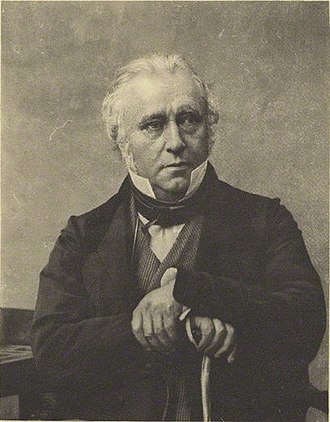(Thomas Babington Macaulay gave us English education and the IPC. But personally he was pompous and self-righteous. M came to Nilgiris in April 1834, carried in a palanquin from Madras, as Law Member when Lord Bentinck – recuperating in Ooty- took over as Governor General of India after the Company was vested with administrative powers. After his three weeks stay when M was about to return there was an awkward incident. One of his palanquin bearers had picked up an affair with a local lady and the her fellow laborers were preventing him from leaving.
About the incident, M later claimed in his biography that seeing the commotion he had directed his bearers to take him and the trouble makers to the nearby Commanding Officer at Ooty and that after hearing M the Commander had all the trouble makers arrested forthwith allowing M and his party to continue with their journey.
But unfortunately there was a witness, that too an outspoken India Judge who was often suspended. His account:)
‘I was proceeding somewhat late on a Sunday morning in the month of April 1834 to the Church (St. Stephens) at Ootacamund, which is situated on the road to Madras, when my attention was attracted by the sight of two palanquins passing the church, surrounded by a mob of men and women, who were endeavoring to arrest the progress of the first palanquin. At the end, the bearers were forced to take another direction and take the palanquins to the office of the commanding officer of the district(old SP’s office in Mount Stuart Hill). Here a gentleman stepped forth from the first palanquin and followed by several persons entered the office. On enquiry, I learned that in the palanquins were Mr. M and his servant. In a short time the gentlemen and those who had followed him came out. He re-entered his palanquin and was borne away on the road to Madras while the mob quietly returned up the hill, the way they had come. I accosted one who appeared to be the leader and asked him what had taken place. He replied, ‘Tom Macaulay Sahib is a very good gentleman ….he gave 100 rupees’.
‘On the following morning I met several gentlemen collected at the gate of the government house who were waiting for the Governor General, Lord William Bentinck, to come down to breakfast. The whole story of the 100 rupee affair of the previous day, of which various versions were in circulation, was the subject of their discourse. But everyone agreed not to let the Governor General know about what had happened’.
‘However, scarcely had the breakfast commenced when his lordship, addressing his secretary said, ‘Well, so Macaulay is gone’ and added to the surprise of all gathered there, ‘And pretty exit that was he made….you think that no one knows anything that is going on, except yourself; pray who tells me everything but Tom, the barber…Tom got 10 rupees for assisting in Macaulay’s exit’…on the whole it was a very silly affair’. From that day, M was styled ‘Silly Tom’ instead of ‘Lucky Tom’ in the gossip on the Nilgiri hills’.
It was the habit of Macaulay that after dinner at the Government House he would very frequently monopolize the conversation for thirty or forty minutes at a stretch with some dry subjects tiresome to many, particularly to those who had spent a long morning in the Governor General’s Council meetings.
Macaulay finally met his match one day at the hands of a Lady Holland. When M went on a similar annoying conversation after dinner at her house, the clever little woman had a remedy to silence M. As Macaulay continued to ramble, she stopped him with two or three taps on the table and said, ‘Come M, we have had enough of this’.
Nilgiri Documentation Centre

